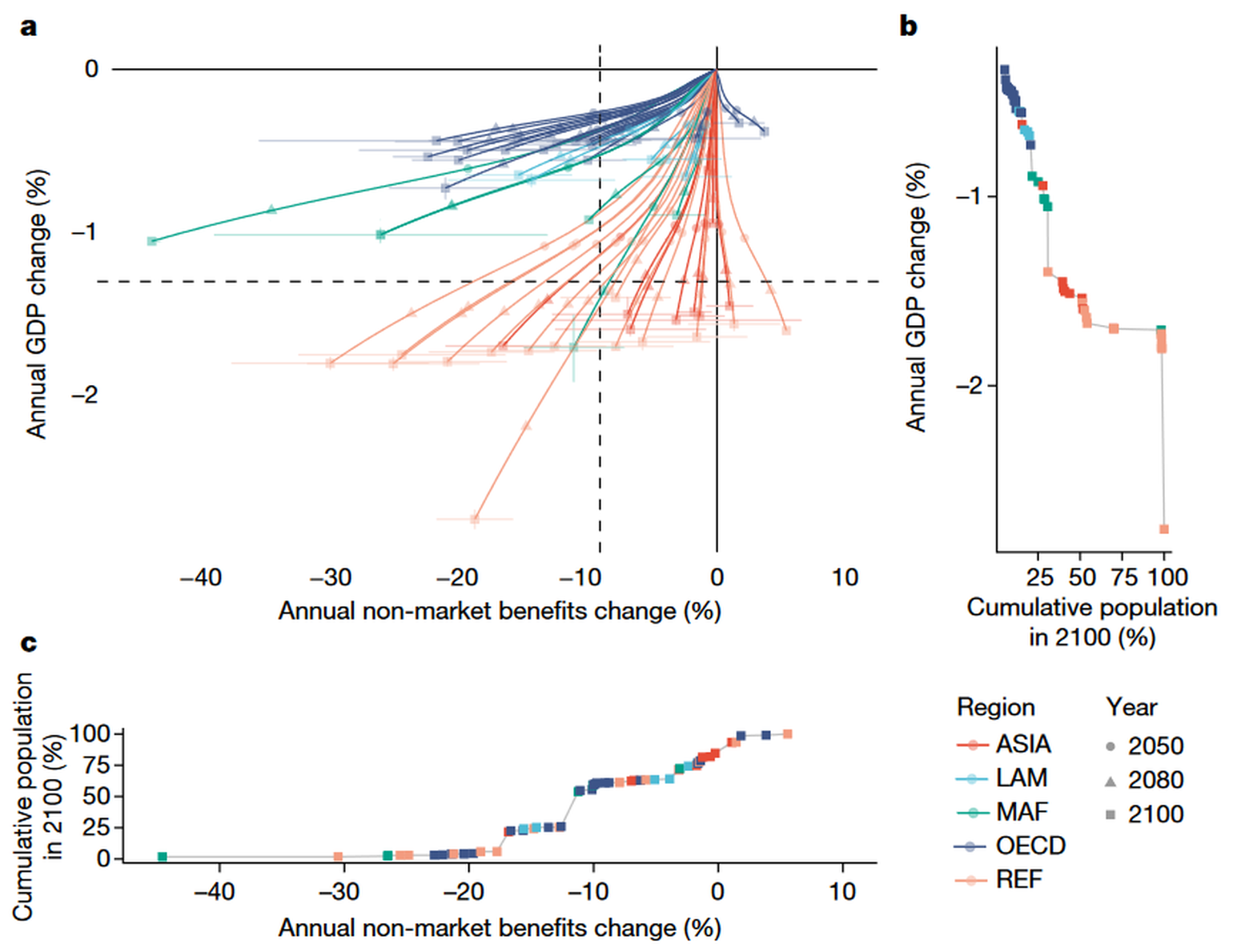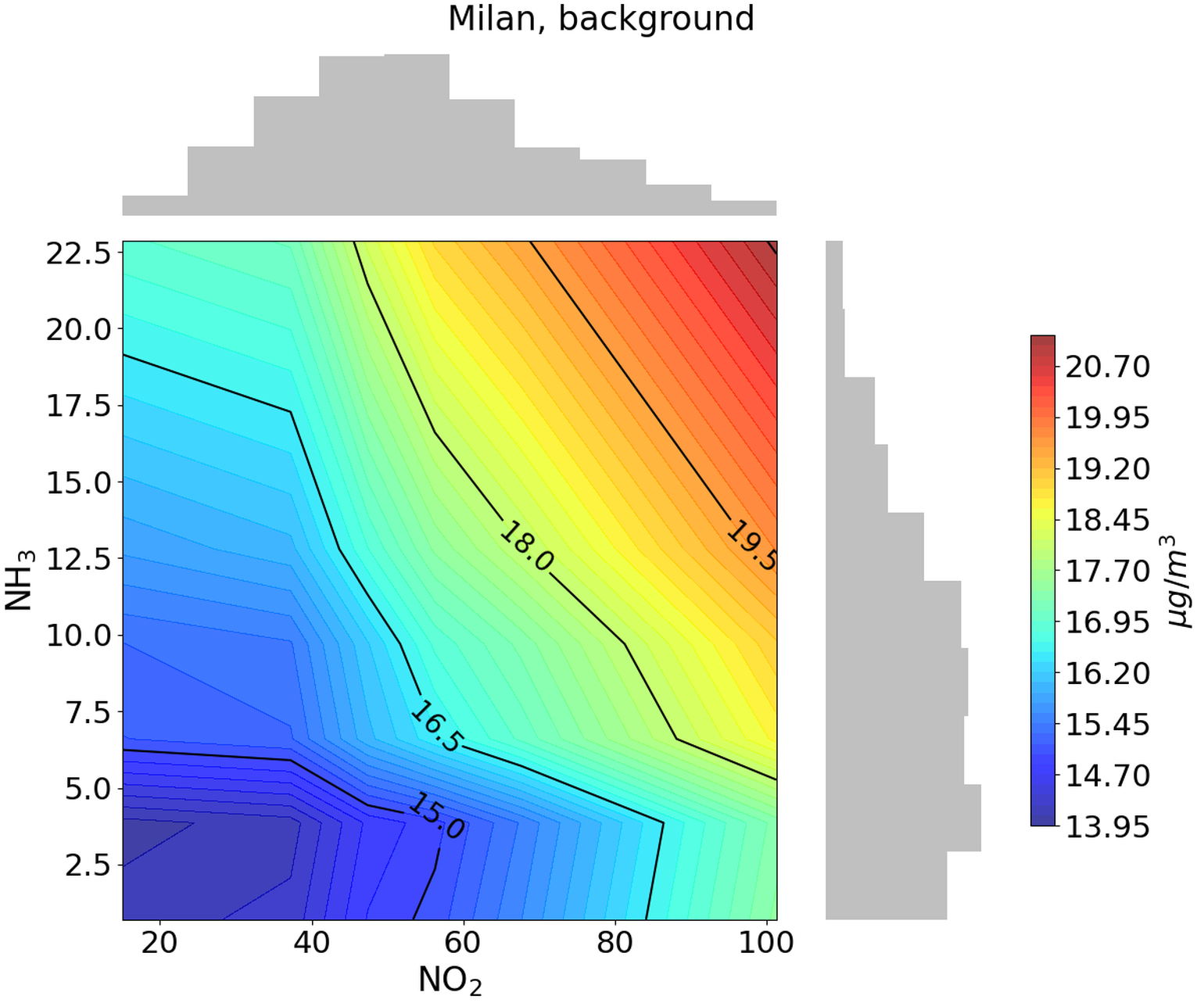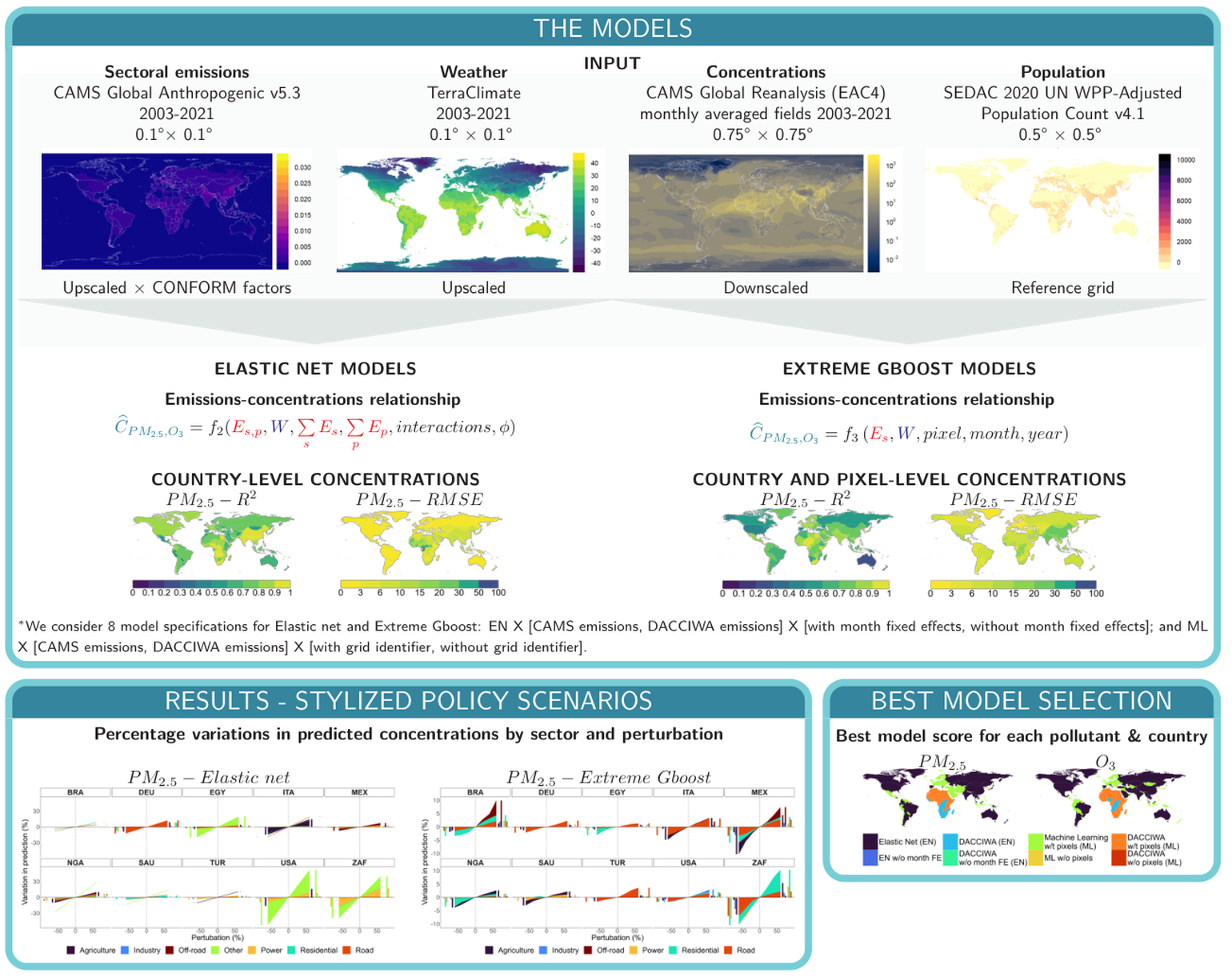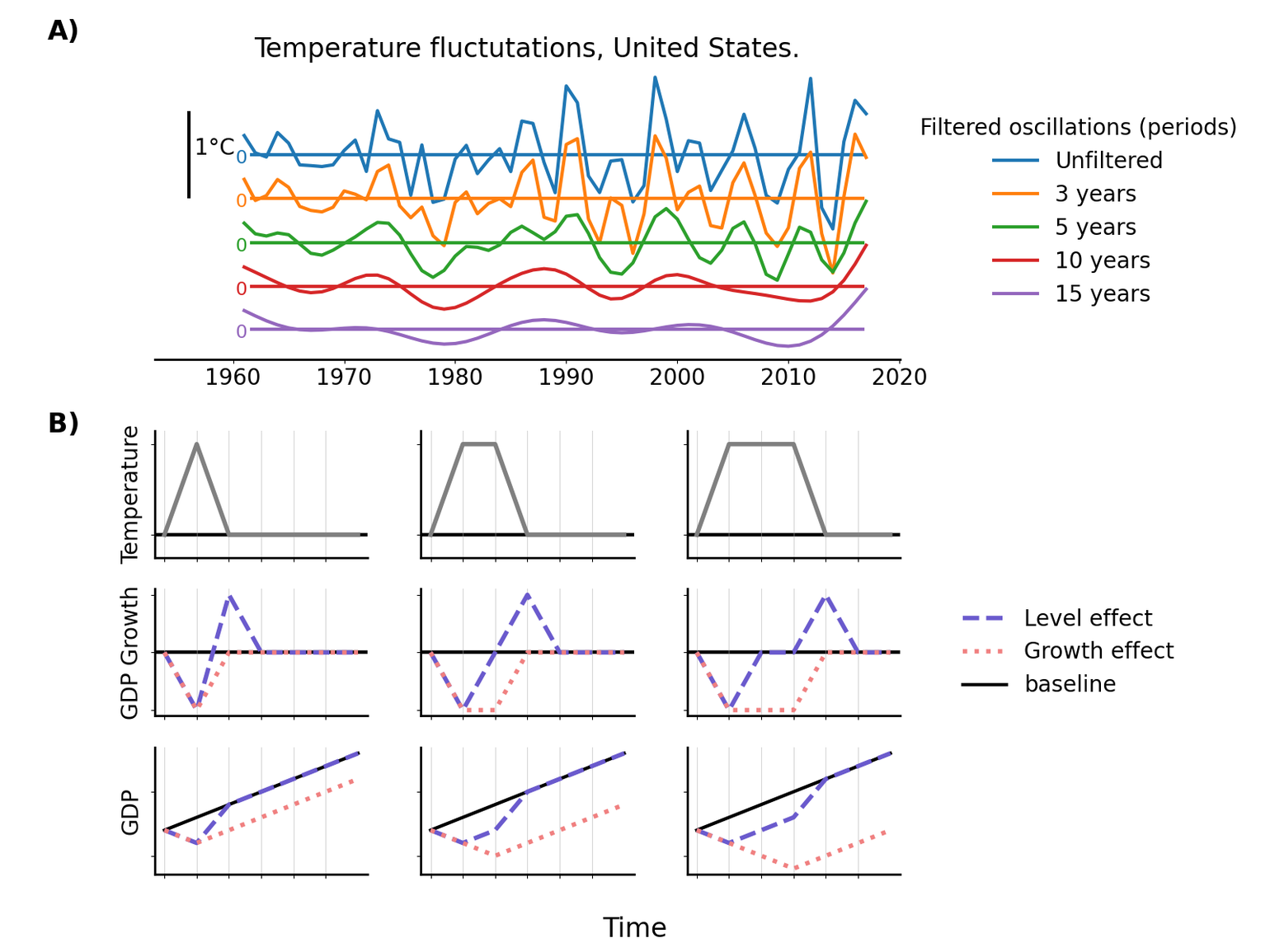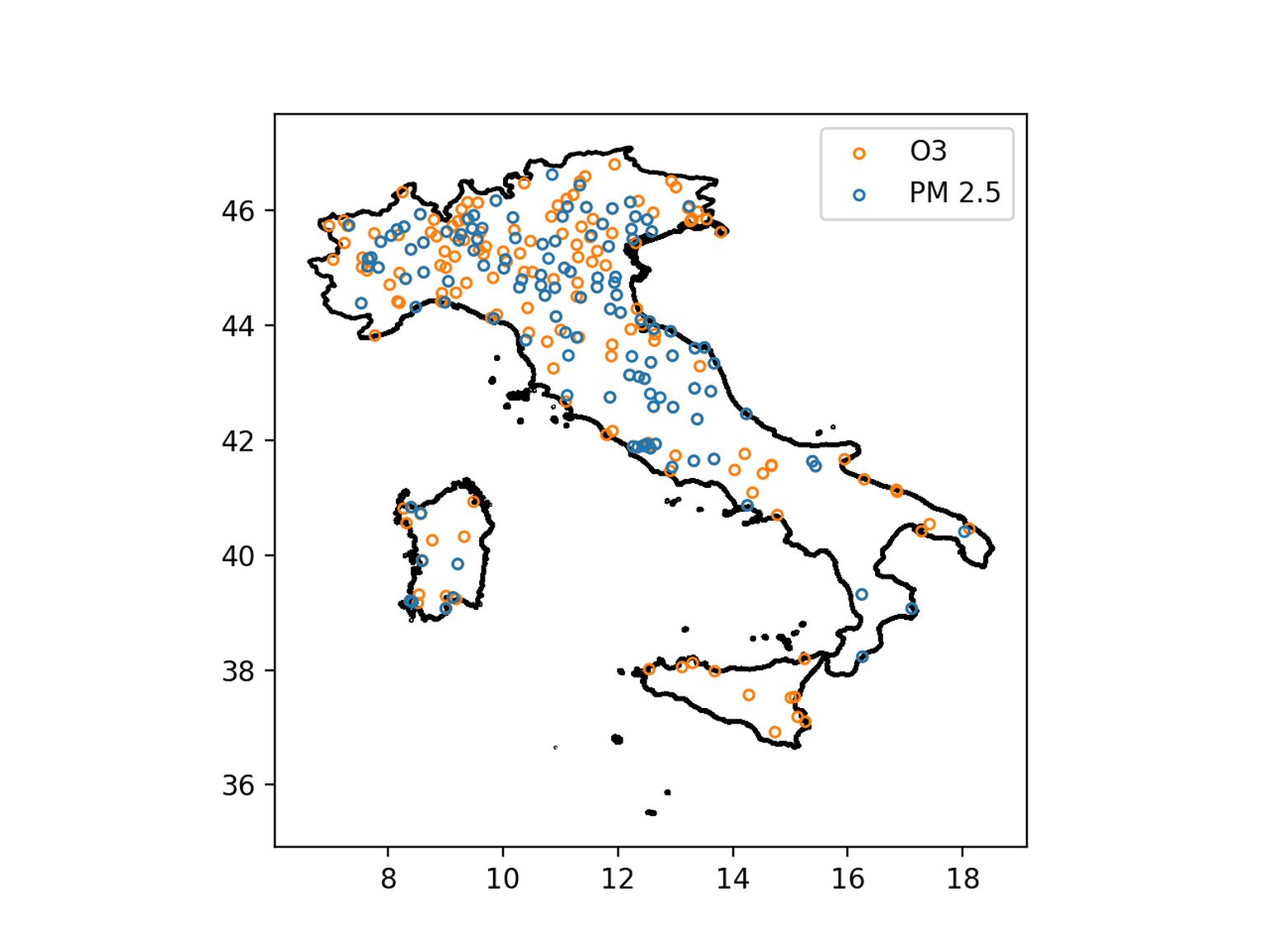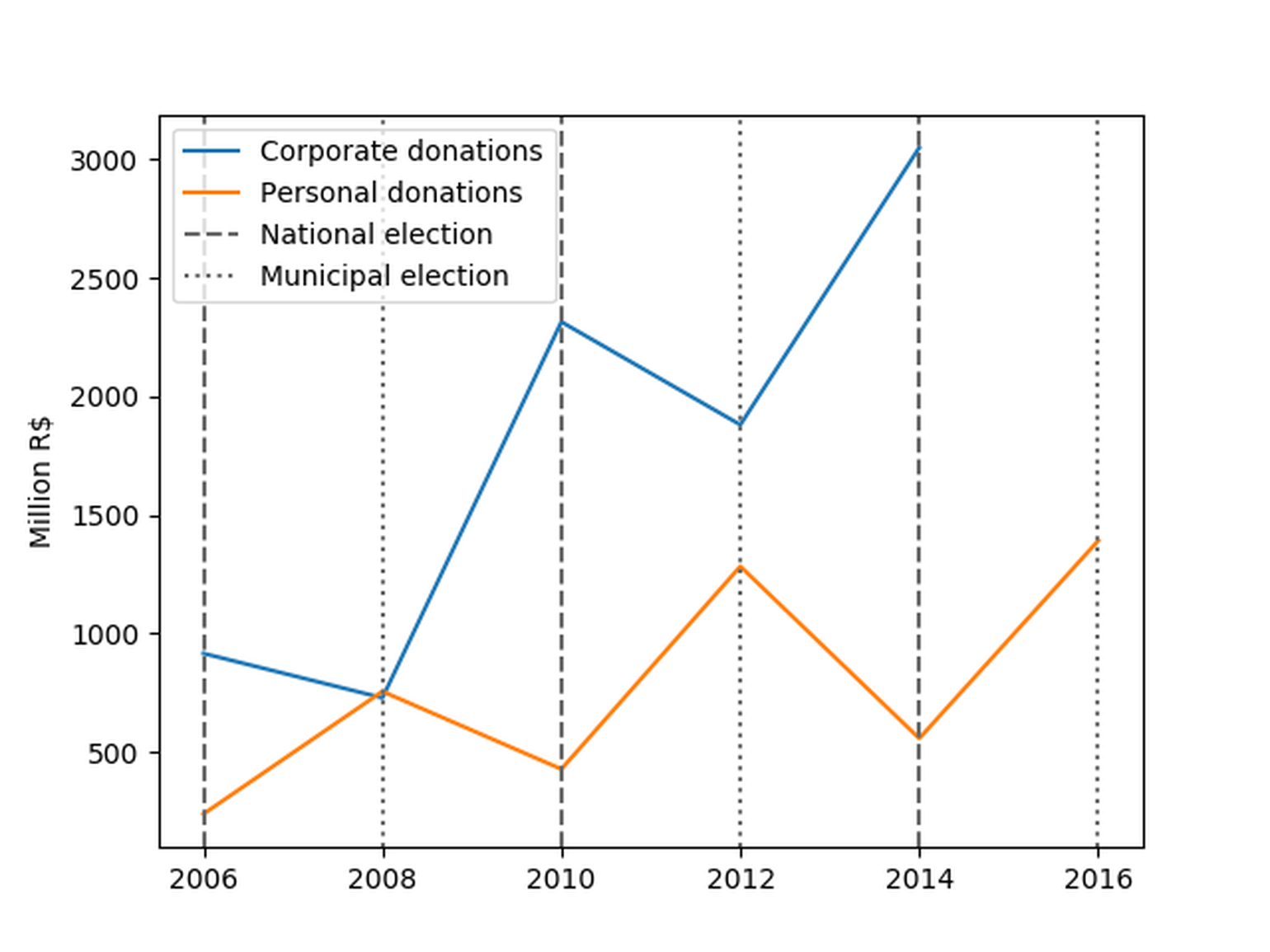Research
*
The effect of air purifiers in schools
Installing air purifiers in elementary schools reduces absences. With Jacopo Bonan, Stefania Renna, and Luis Sarmiento.
Climate Change Impacts on Within-Country Income Distributions
We explore the economic impact of temperature fluctuations on income inequality within and between countries, and assess the consequences of rising temperatures until the end of the century. With Martino Gilli, Matteo Calcaterra and Johannes Emmerling.
Impacts of agriculture on PM10 pollution and human health in the Lombardy region in Italy
Intensive farming can have significant implications on air pollution and public health. With Stefania Renna, Jacopo Lunghi, Maurizio Malpede, Damiano Di Simine.
Unequal climate impacts on global values of natural capital
Climate change will shift biomes across borders. What are the implications for economic production and non-market ecosystem benefits? Under SSP3-6.0, by 2100 GDP will be reduce by 1.3% compared to baseline and non-market ecosystem benefits by 9.2%. With Bernie Bastien-Olvera, Marc Conte, Xiali Dong, Tania Briceno, David Batker, Johannes Emmerling, Massimo Tavoni, and Fran Moore.
The formation of secondary inorganic aerosols: A data-driven investigation of Lombardy’s secondary inorganic aerosol problem
Agriculture can be a major source of secondary inorganic particulate matter (PM). Where this is the case, even substantially large reduction in precursor emissions may not deliver large drops in secondary inorganic PM. With Stefania Renna and Lara Aleluia Reis.
CLAQC V1.0 – Country Level Air Quality Calculator. An Empirical Modeling Approach
The Country Level Air Quality Calculator (CLAQC) is an open-source modeling tool that utilizes national sectoral emissions and weather data to forecast monthly and annual concentrations PM2.5 and O3 using machine learning. With Stefania Renna, Lara Aleluia Reis and Paulina Estela Schulz-Antipa.
Persistent Effect of Temperature on GDP identified from Lower Frequency Temperature Variability
We present a novel approach to isolate the persistent component of temperature effects on output using lower frequency temperature variation. With Bernardo Bastien-Olvera and Frances Moore.
COVID-19 lockdown only partially alleviates health impacts of air pollution in Northern Italy
What can a lockdown tell us about air pollution? We use machine learning to causally identify the drop in PM 2.5 and NO2 in Northern Italy during the first COVID-19 lockdown, and learn about emission patterns. With Lara Aleluis Reis, Valentina Bosetti, and Massimo Tavoni.
Heterogeneous Effects of Air Pollution on Physical Tasks: Evidence from Amateur Track and Field
Although a large share of the world’s population is employed in manual labor, our understanding of the productivity costs of air pollution for physically intensive work remains limited.
Campaign money for nothing? Understanding the consequences of a ban on corporate contributions: evidence from Brazil.
Are bans on electoral contributions from firms effective? We find that contributing firms can circumvent the ban and retain an advantage in procurement tenders. With Alexandros Cavgias



